Indigenous Governance Database
Self-Government
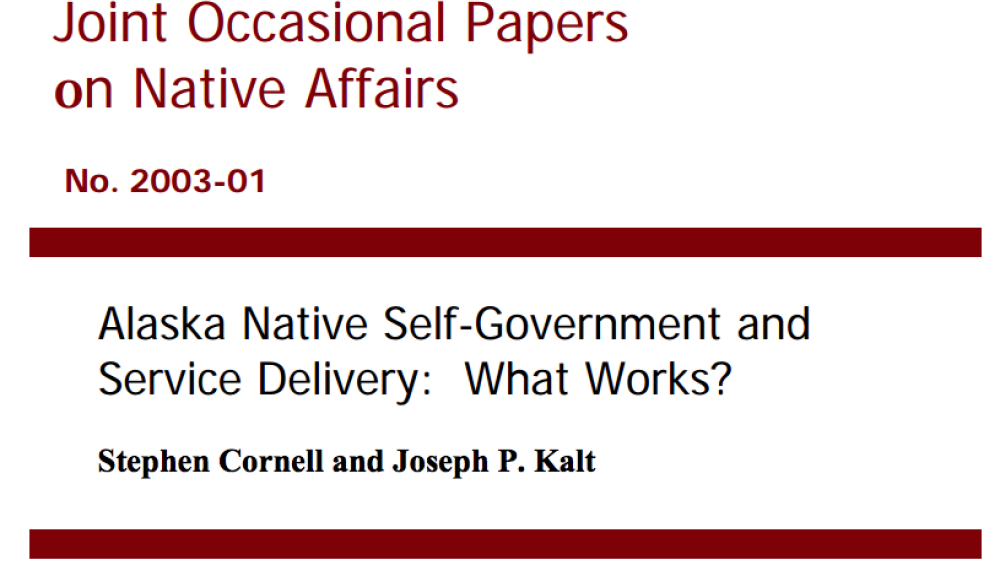
Alaska Native Self-Government and Service Delivery: What Works?
The Native peoples of Alaska have governed themselves for far longer than either the State of Alaska or the United States. Indeed, their rights of self-government are properly defended as basic human rights that are not unilaterally extinguishable by these other governments. Yet, today an…

Stephen Cornell: The Task of Reclaiming Self-Governance (Presentation Highlight)
In this highlight from the presentation "Key Things a Constitution Should Address: 'Who Has Responsibility for What?'," NNI's Stephen Cornell provides an overview of the fundamental questions that Native nations must ask themselves as they reclaim control over and then redesign their governance…
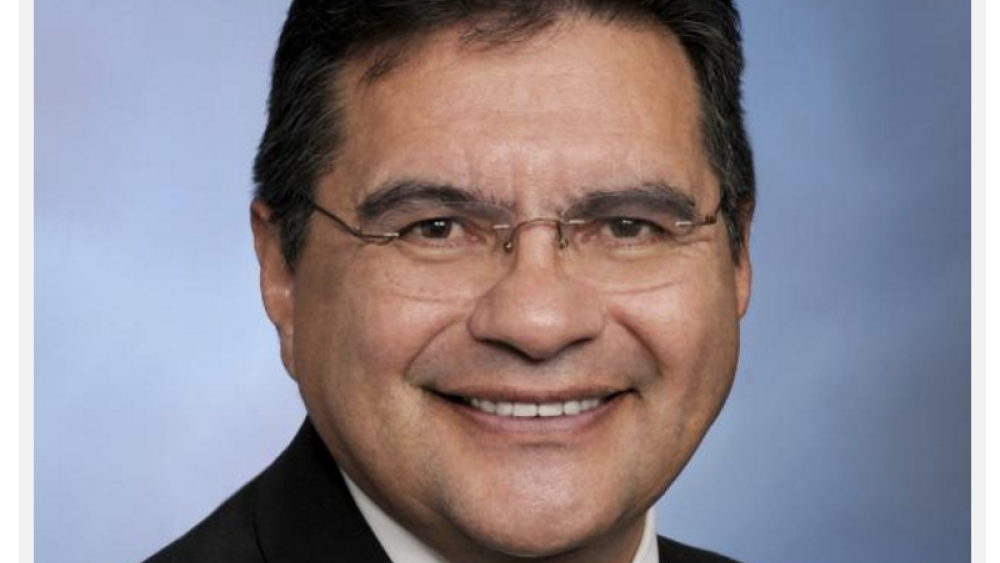
Meeting Economic Development Challenge in Indian Country
Native American communities have taken great strides in developing their economies and raising the quality of life on tribal lands. However, as President Obama noted during his historic visit to Indian country in June, there are still wide disparities between Native Americans and the overall U.S.…
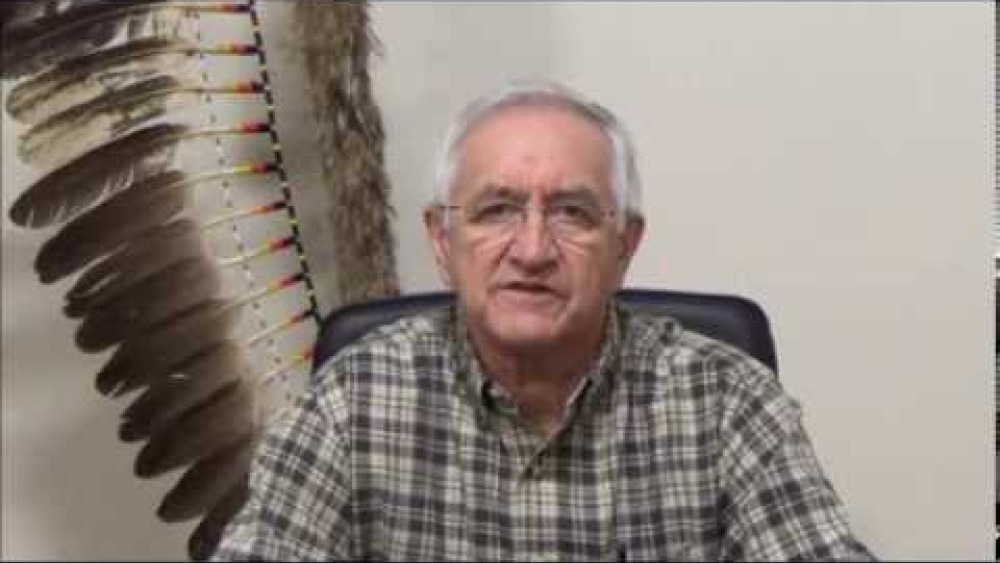
Arnold May: Nipissing First Nation Gichi-Naaknigewin (Constitution)
Counsellor Arnold May of the Nipissing First Nation discusses the importance of the Nipissing Gichi-Naaknigewin (Constitution), which was ratified in 2014 by the Nipissing people.

Why Treaties Matter (video)
This 15-minute video, produced by the National Museum of the American Indian, serves as a companion piece to "Why Treaties Matter - Self Government in the Dakota and Ojibwe Nations," a travelling exhibit on treaties between Dakota and Ojibwe people and the U.S. The film introduces the…
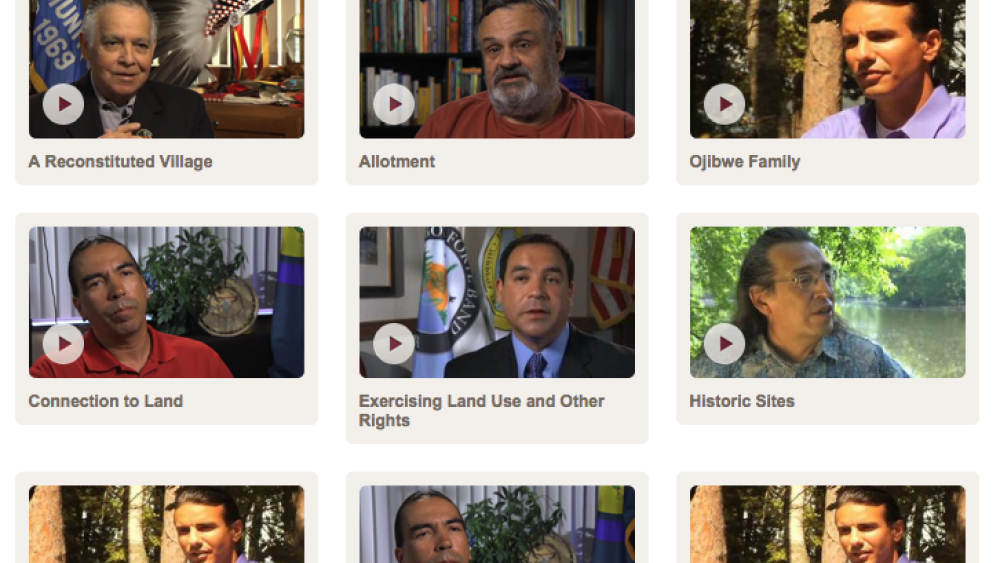
Why Treaties Matter: Video Gallery
This video gallery serves as a companion piece to "Why Treaties Matter - Self Government in the Dakota and Ojibwe Nations," a travelling exhibit on treaties between Dakota and Ojibwe people and the U.S. It features testimonies from Native nation leaders and citizens about many of the exhibit's main…
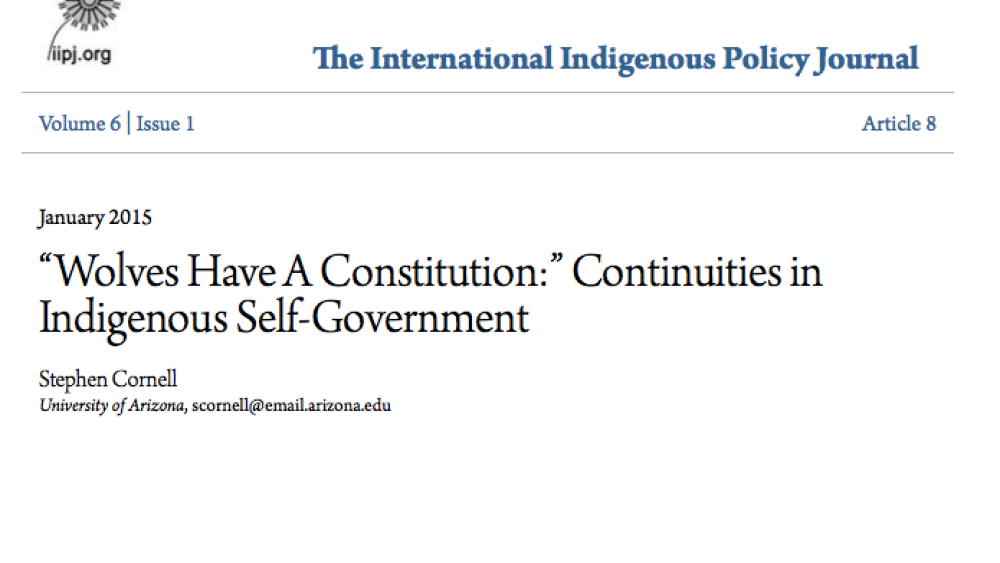
Wolves Have A Constitution: Continuities in Indigenous Self-Government
This article is about constitutionalism as an Indigenous tradition. The political idea of constitutionalism is the idea that the process of governing is itself governed by a set of foundational laws or rules. There is ample evidence that Indigenous nations in North America–and in Australia and New…
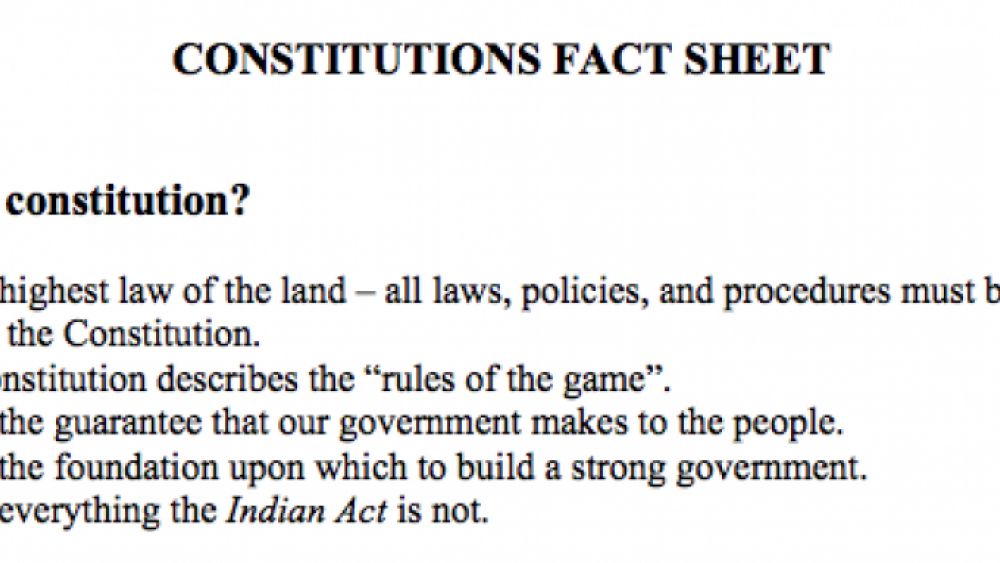
Constitutions Fact Sheet
The National Centre for First Nations Governance developed this quick reference for Native nations who are discussing constitutions and constitutional reform.
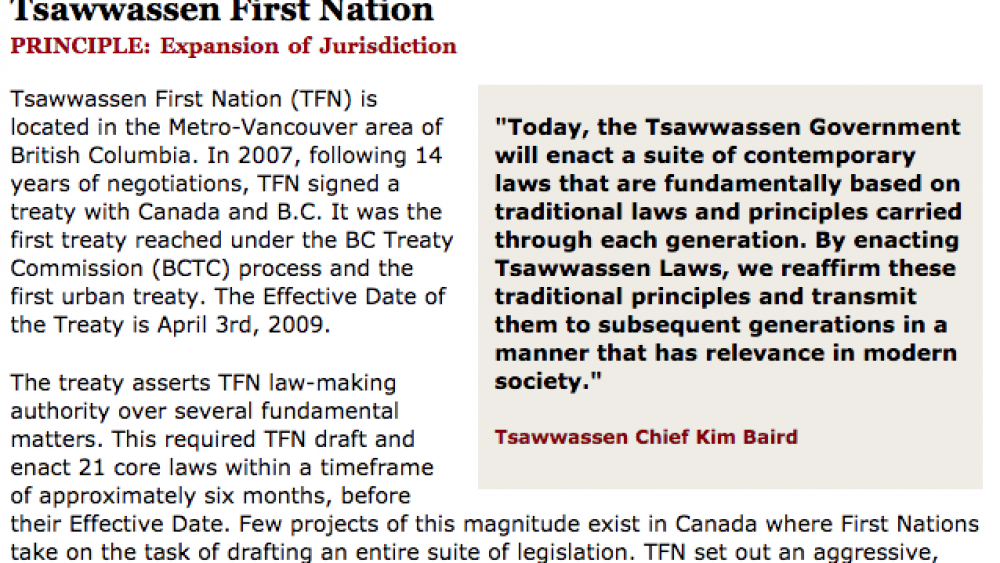
Best Practices Case Study (Expansion of Jurisdiction): Tsawwassen First Nation
Tsawwassen First Nation (TFN) is located in the Metro-Vancouver area of British Columbia. In 2007, following 14 years of negotiations, TFN signed a treaty with Canada and B.C. It was the first treaty reached under the BC Treaty Commission (BCTC) process and the first urban treaty. The Effective…
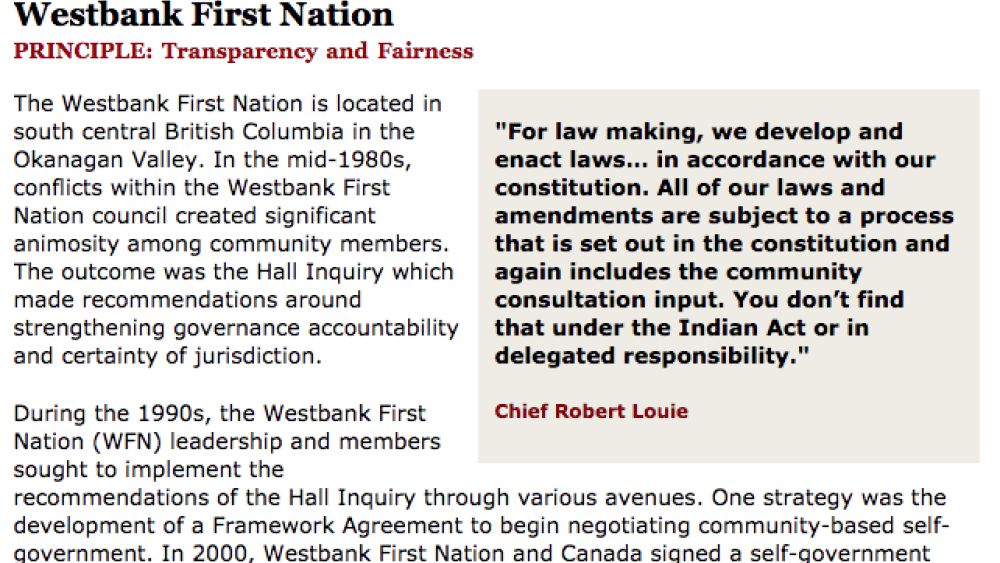
Best Practices Case Study (Transparency and Fairness): Westbank First Nation
The Westbank First Nation is located in south-central British Columbia in the Okanagan Valley. In the mid-1980s, conflicts within the Westbank First Nation council created significant animosity among community members. The outcome was the Hall Inquiry which made recommendations around strengthening…
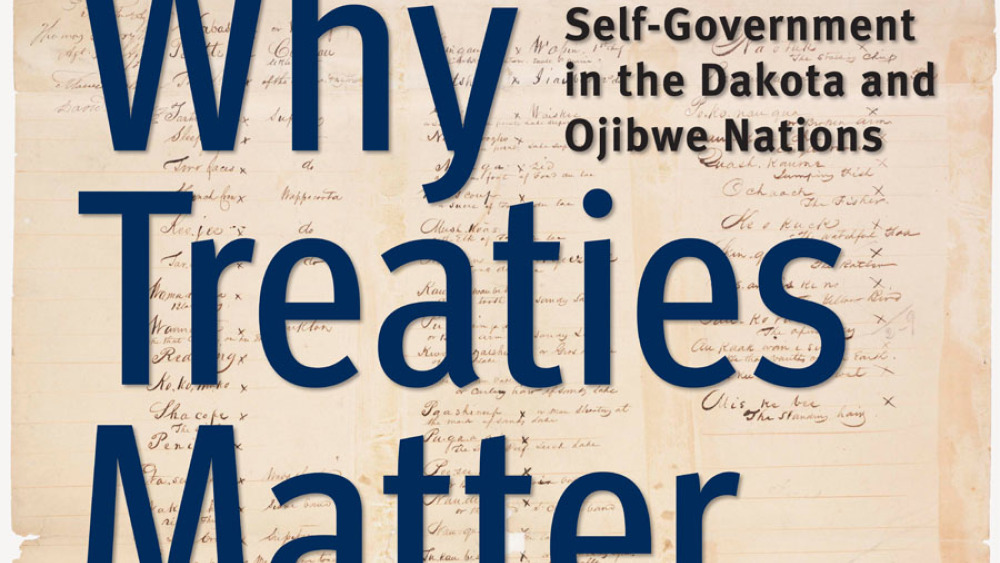
Why Treaties Matter: Relations: Dakota & Ojibwe Treaties
Ojibwe and Dakota people in what is now Minnesota signed dozens of treaties with the United States. Among these treaties are famous land cession agreements in which sovereign American Indian groups retained ownership or use of natural resources — land, water, timber, minerals — or transferred these…
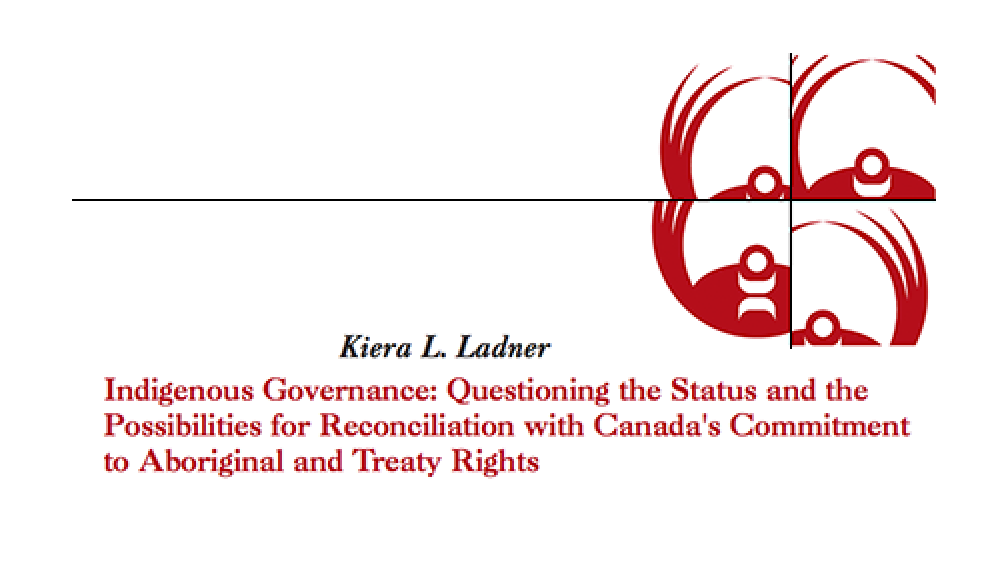
Indigenous Governance: Questioning the Status and the Possibilities for Reconciliation with Canada's Commitment to Aboriginal and Treaty Rights
Indigenous peoples have always had governance. This fact has been a matter of great debate among Canadian politicians and scholars for many years, but there is little doubt that Indigenous Nations had developed for themselves complex systems of government prior to colonization. The…
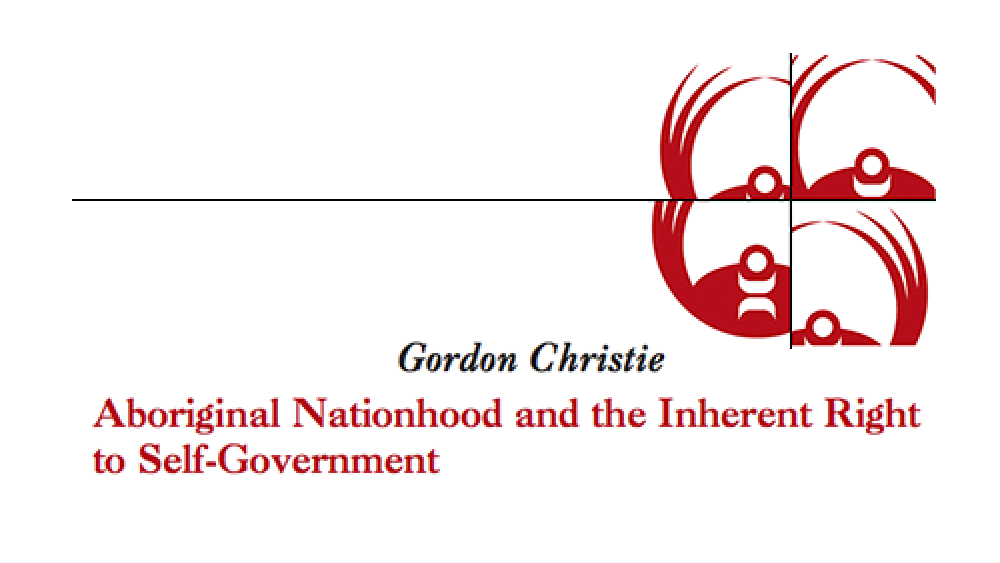
Aboriginal Nationhood and the Inherent Right to Self-Government
Canadian governments and courts recognize that pre-contact Aboriginal societies possessed their own legal and political systems and that to this day these nations have not surrendered the powers they fully exercised before colonial policies undercut their authority. …
